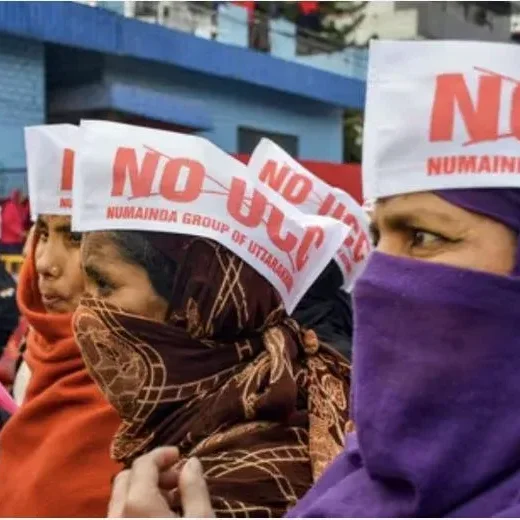Hundreds of Muslims gathered in Haridwar, Uttarakhand, on Saturday to protest the Uniform Civil Code (UCC). The demonstration, organized by the Muslim Seva Sanghatan, took place outside the Collectorate Office. Protesters voiced their opposition to the UCC, which went into effect on January 27th.
Concerns Over the Uniform Civil Code
The demonstrators held signs and chanted slogans, calling for the withdrawal of the law. Many groups oppose the Uniform Civil Code, believing it could negatively impact their religious rights and personal laws. The recent protest emphasizes the increasing worries about the UCC and how it might affect minority communities.
Voices of the Protest
Mohammad Rizwan, a member of Muslim Seva Sanghatan, stated, “We are not against the law of the land, but the UCC is a direct violation of our religious rights and personal laws.” His statement reflects the views of many protesters who feel the UCC goes against their constitutional rights. They believe it threatens their freedom to practice their religion and follow their own personal laws.
Understanding the UCC
The implementation of the UCC is a major change in Indian law. It seeks to establish a single legal system for all citizens, no matter their religion. The law aims to standardize personal law issues, including marriage, divorce, inheritance, and adoption. This move has sparked considerable discussion and debate across the country. Consider reading more about the history of similar legal reforms in India.
Looking Ahead
The UCC remains a contentious issue. It is crucial to observe how the government responds to the concerns expressed by various communities. Ensuring the protection of religious and personal rights will be essential as the UCC continues to be debated and implemented.
